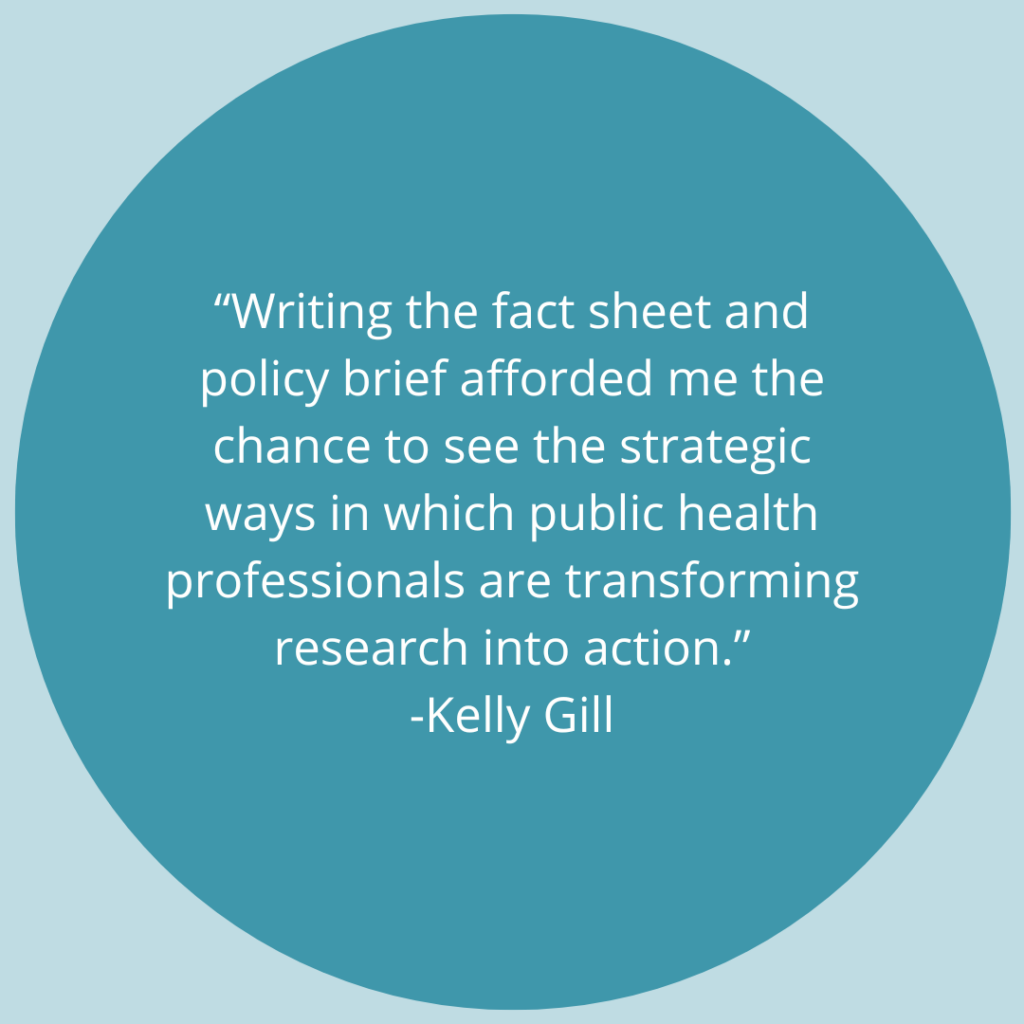#UMNMCH student Kelly Gill (MPH 2025) wrote this reflection on her deployment at the Minnesota Department of Health’s Women’s Health Unit. As a part of her position, Kelly created multiple briefs to improve the availability of resources that would improve maternal outcomes. Kelly hopes that maternal mental health continues gaining visibility as a key issue in the field of public health so it can receive the funding, research, and policy changes needed to save lives.
Learning in Action at MDH
My deployment is with the Minnesota Department of Health’s Women’s Health Unit. This unit is a part of the MCH Section, which provides statewide leadership and public health information essential for promoting, improving or maintaining the health and well-being of women, children, and families throughout Minnesota. My deployment also served as my required applied practice experience, so my projects were designed to meet several public health and maternal and child health competencies. Under the guidance of the MDH Women’s Health Unit Supervisor, I developed a policy brief recommending Minnesota develop Standards for Respectful Maternity Care and a fact sheet on Perinatal Peer Support Specialists. These projects allowed me to apply my research skills, advocate for policy changes, and summarize innovative research.
Policy Brief: Bill of Birthing Rights
The state’s current policies and practices need updating to ensure that women experience respectful and dignified care during pregnancy and labor. My policy brief examined the human right to a respectful birthing experience, and discussed a recommended policy for state-level respectful birth standards. The idea for the policy brief on adopting standards for respectful maternity care came from these New York City Standards for Respectful Care at Birth. These standards identify key patient rights: education, informed consent, decision-making, quality of care, support, and dignity. This tool is intended to inform, educate, and support people giving birth. I used this policy as the gold-standard recommendation for Minnesota legislators in my brief.
Fact Sheet: Perinatal Peer Support Model
A perinatal peer support specialist is someone who uses their own experiences with perinatal mental health to help others who are going through similar situations. The fact sheet defines the peer support role, summarizes the evidence for a peer support model, outlines the path to certification in Minnesota, shares optional perinatal add-on training opportunities, and notes the obstacles and next steps to a successful perinatal peer support workforce.
To create the Peer Support Specialist fact sheet, I first reviewed available literature on the peer support model and perinatal peer support interventions. I also reviewed the April 2023 Issue Brief from the Policy Center for Maternal Mental Health (formerly known as 2020 Mom). The existing research found that perinatal peer support is a promising practice for addressing maternal mental health disorders. Pilot studies by the Policy Center for Maternal Mental Health identified next steps and obstacles to implementation. Together, these findings became the basis for the fact sheet I created to summarize the current state of the perinatal peer support model and paths to certification in Minnesota.
Beyond the Deployment
This deployment allowed me to apply research, project management, writing, data analysis, and policy skills from my coursework to real-world projects. Through this experience, I have gained a greater understanding of how state departments of health can contribute to the improvement of maternal health. In particular, writing the fact sheet and policy brief afforded me the chance to see the strategic ways public health professionals are transforming research into action. I will bring this learning into my future career, where I plan to leverage evidence-based practices and frameworks to improve maternal mental health care.
BIO
Kelly Gill will graduate in Spring 2025 with an MPH in MCH. Kelly received her BS from the University of Wisconsin-Madison and worked as a second-grade teacher before beginning her public health graduate studies. She recently served as the Title V Intern for the Iowa Department of Health and Human Services in Summer 2024.
Interested in learning more about getting a degree in MCH? Visit our MCH Program page for more information.
#UMNMCH #UMNproud #UMNdriven

